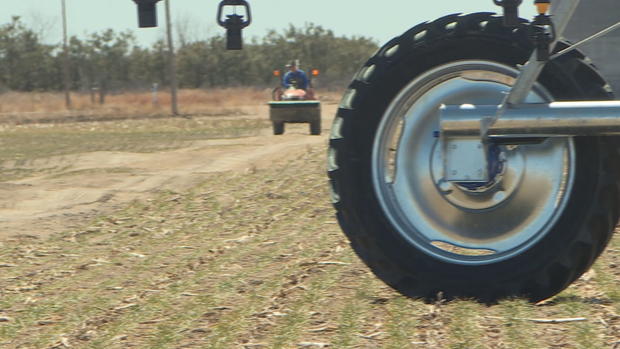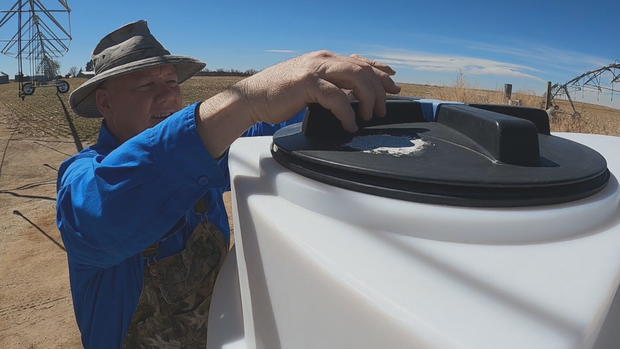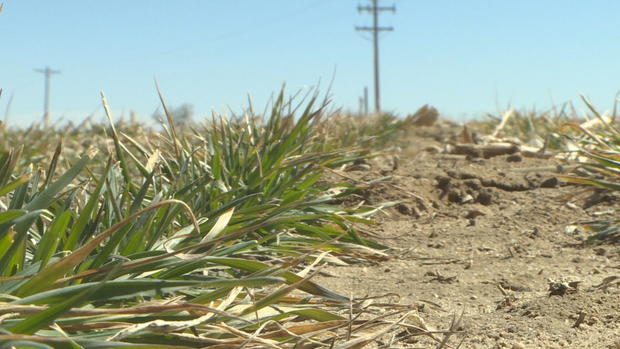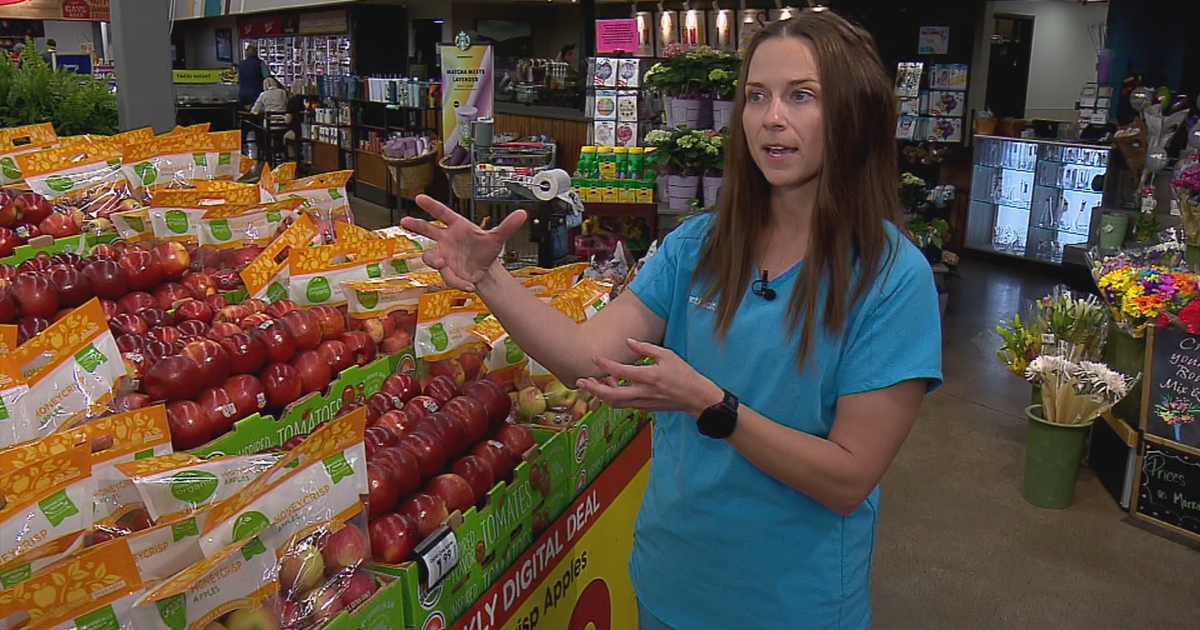'Prices Have Almost Doubled': Colorado Wheat Farmers Seeing Prices Surge
WIGGINS, Colo. (CBS4) – As the war in Ukraine continues, and the world sees dramatic inflation rates, farmers across Colorado have seen the price of fertilizer and wheat grow compared to years past. Since Russia invaded Ukraine the price for a bushel of wheat has doubled, now selling at record highs.
However, as the costs are handed down to consumers at the store, the National Association of Wheat Growers says higher wheat prices does not equate to more money in farmer pockets.
Russia and Ukraine are two of the largest wheat exporters in the entire world. More than 30% of the world's wheat comes from the feuding countries.
"Wheat is in almost everything we eat here," said Stephen Smith, a wheat farmer in Wiggins. "Since the war started, prices have almost doubled."
Like most farmers, Smith rotates his crops annually. In September of 2021 Smith chose to plant wheat. He said he couldn't have predicted the sudden market surge for wheat that was coming in the new year.
It will take more than 10 months from seeding to grow and harvest his hard red winter wheat crop.
"It is a precious commodity," Smith told CBS4's Dillon Thomas. "It's the highest (price point) it has been in decades."
However, the price to produce the wheat has grown faster than the wheat itself. Fuel prices, supply shortages and liquid fertilizer have made farming wheat a difficult business of late.
Russia is one of the largest net exporters of gasoline and natural gas in the world. Farmers, like Smith, often use liquid fertilizers made of a concoction of chemicals and fuels.
Russia is one of the largest exporters of fertilizer thanks to their abundance of access to natural gas, a component in the product. Fertilizer was already selling at high rates before the invasion. Sanctions and other factors have caused the price to increase even more. Because of that, Smith has traded with his farming neighbor to obtain significant amounts of dairy manure for fertilizer.
"We need fertilizer. One of the major suppliers of fertilizer is Russia," Smith said. "This is a scary situation to be in. There will be places that have wheat shortages this year throughout the world. But, not here in the United States."
According to the National Association of Wheat Growers, every time you buy a loaf of bread only 17 cents goes back to the farmer. Chandler Goule, CEO of the lobbying group, said the uncertainty for the farmers is just now sprouting.
"We are looking at major increases in cost of production. So, even though we are seeing globally higher food prices around the world and in the U.S., the amount of money going to the wheat grower is staying the same. We could be looking at a very difficult financial year next year," Goule said.
Goule said farmers in America are now attempting to take the necessary steps to make sure the country has enough wheat moving forward. Spring wheats are now being planted in Texas. Goule said Colorado will start planting some of our own spring wheats in the coming weeks, which should be available for harvest in November.
With only 17 cents per loaf of bread making it back to farmers, Goule said the middlemen in the process are the ones most absorbing the increased prices for goods.
"The food companies are making all of the money, the farmer is not," Goule said. "The bakers and the food companies, that is where it is all being absorbed. It does not trickle down to the grower."
Smith said the skyrocketing costs of farming don't pair well with the stagnant returns they are receiving from sale of wheat.
"The cost of our inputs have at least doubled. We may end up making even less than we have in previous years, even with record pricing for wheat," Smith said. "We are in one giant interconnected web economically worldwide. That is why you are interested in the things that happen overseas. Because they impact you in your own pocketbook and the food you're putting in your mouth. And we are seeing it right now."






